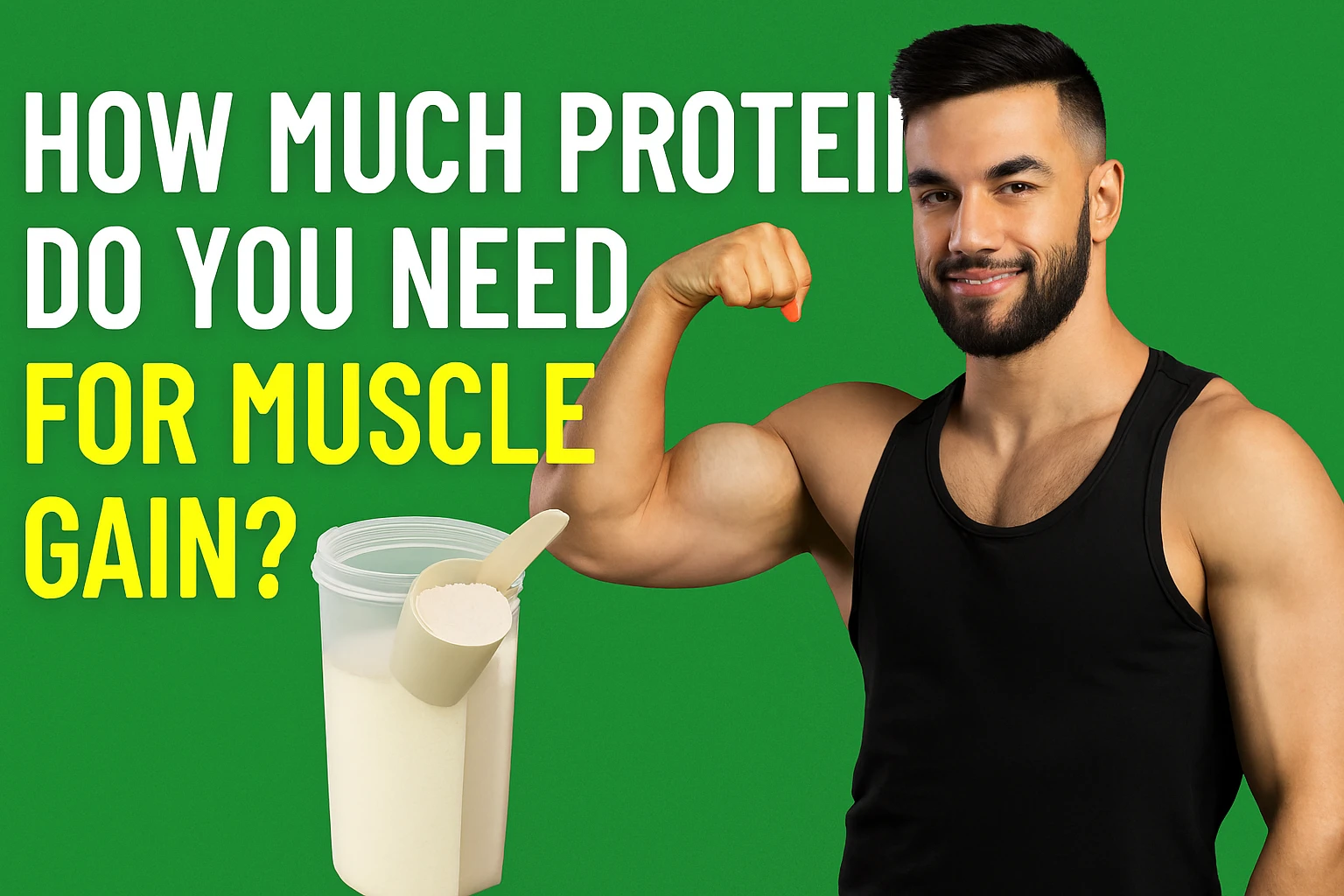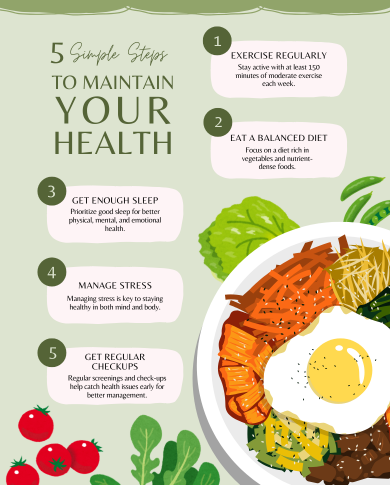Gaining muscle is a goal many fitness enthusiasts, athletes, and bodybuilders pursue to improve physical appearance, strength, and overall health.
While resistance training and a well-structured workout routine are essential, one of the most critical factors determining muscle growth is nutrition—especially protein intake.
But the big question remains: How much protein do you really need for muscle gain? This guide explains everything you need to know, from the science behind protein’s role in muscle building to practical tips and common mistakes to avoid.
Why Is Protein Important for Muscle Gain?
Protein is the building block of muscles. When you perform strength training exercises, small microtears occur in your muscle fibers.
Your body repairs these tears by synthesizing new proteins, making the muscles stronger and bigger over time. Without sufficient protein, this repair and growth process would be inefficient or even halted.
The Science of Muscle Protein Synthesis (MPS)
Muscle Protein Synthesis (MPS) is the process your body uses to build new muscle tissue. When you consume dietary protein, your body breaks it down into amino acids, which are the building blocks of muscle. These amino acids stimulate MPS, helping repair and grow muscles.
A positive net protein balance—where muscle protein synthesis exceeds muscle protein breakdown—is essential for gaining muscle mass.
How Protein Supports Muscle Growth
Protein performs several key roles in muscle growth:
- Provides Amino Acids: Essential amino acids (EAAs), especially leucine, directly stimulate MPS.
- Prevents Muscle Breakdown: A steady supply of protein reduces muscle catabolism during calorie deficits or intense workouts.
- Improves Recovery: Protein supports faster recovery by repairing muscle tissue.
- Enhances Strength: Proper protein intake boosts strength gains by facilitating muscle repair and hypertrophy.
Recommended Daily Protein Intake for Muscle Gain
The exact protein requirement for muscle gain varies depending on factors such as age, sex, body weight, activity level, and fitness goals.
General Guidelines
- Sedentary Adults: 0.8 grams of protein per kilogram of body weight per day.
- Recreational Exercisers: 1.2 – 1.6 grams/kg/day.
- Athletes / Bodybuilders: 1.6 – 2.2 grams/kg/day.
Example:
A person weighing 70 kg (154 lbs) aiming for muscle gain should consume between:
- 112 grams to 154 grams of protein daily (1.6 – 2.2 grams/kg).
Why Higher Protein Intake?
Research suggests that consuming protein in this range maximizes muscle protein synthesis without overloading the kidneys or causing other health issues in healthy individuals.
Protein Intake Based on Body Weight and Goals
Let’s break down protein needs by goal type:
1. General Muscle Gain (Maintenance Calories)
- 1.6 – 2.0 grams/kg body weight.
2. Muscle Gain During Caloric Surplus
- 1.8 – 2.2 grams/kg body weight.
3. Muscle Gain During Fat Loss (Cutting)
- Higher protein intake is essential to prevent muscle loss.
- 2.2 – 2.5 grams/kg body weight.
Special Populations
- Older Adults: Require higher protein intake (1.2 – 1.6 grams/kg) to combat sarcopenia.
- Vegetarians/Vegans: Need to be mindful of protein quality; plant-based sources may require slightly higher total intake to achieve the same amino acid profile.
Best Protein Sources for Muscle Gain
High-quality protein sources include those rich in essential amino acids, especially leucine.
Animal-Based Sources
- Chicken breast
- Lean beef
- Turkey
- Eggs
- Greek yogurt
- Cottage cheese
- Milk
- Fish (salmon, tuna)
Plant-Based Sources
- Lentils
- Chickpeas
- Quinoa
- Tofu
- Tempeh
- Edamame
- Pea protein
Protein Quality Matters
Animal proteins generally have a higher biological value (BV) and digestibility compared to plant proteins. However, combining plant proteins (e.g., rice and beans) ensures a complete amino acid profile.
Timing Protein Intake for Optimal Results
Pre-Workout Protein
- Helps fuel muscles during training.
- Ideal: 20–30 grams of protein 1–2 hours before exercise.
Post-Workout Protein
- Critical for maximizing MPS.
- Ideal: 20–40 grams of high-quality protein within 30–60 minutes post-workout.
Protein Distribution Throughout the Day
Consuming protein evenly throughout the day optimizes muscle protein synthesis.
- Example: 4 meals containing ~30 grams of protein each.
Common Mistakes in Protein Consumption
- Undereating Protein
- Many neglect proper protein intake, slowing muscle gains.
- Relying Only on Protein Supplements
- Whole foods provide additional micronutrients and fiber.
- Overeating Protein
- More protein doesn’t always mean more muscle. Excessive protein is stored as fat or excreted.
- Ignoring Meal Timing
- Distributing protein intake across meals is more effective than a single large intake.
Do You Need Protein Supplements?
Protein supplements like whey, casein, and plant-based powders can be helpful, especially when:
- It’s challenging to meet protein needs through food alone.
- On-the-go convenience is required.
Best Supplements
- Whey Protein: Rapidly absorbed, ideal post-workout.
- Casein Protein: Slowly digested, good before bedtime.
- Pea/Rice Protein: For vegans or lactose-intolerant individuals.
How to Calculate Your Protein Needs
Step-by-Step Calculation
- Determine your body weight in kilograms (kg).
- Choose your target protein range (e.g., 1.6–2.2 grams/kg).
- Multiply body weight by target grams.
Example:
- Weight: 80 kg
- Target: 1.8 grams/kg
- Daily Protein Requirement: 80 × 1.8 = 144 grams/day
Risks of Excessive Protein Intake
Consuming extremely high amounts of protein (e.g., over 3 grams/kg/day) may cause:
- Kidney strain (in susceptible individuals).
- Dehydration.
- Increased fat storage if calories exceed requirements.
- Digestive issues.
For healthy individuals, moderate protein intake in the recommended range is safe and effective.
Sample Daily Meal Plan for Muscle Gain
Breakfast
- 4 Egg Whites + 2 Whole Eggs
- Oatmeal with Berries
- 1 Cup Greek Yogurt
Mid-Morning Snack
- Protein Shake (30g Whey Protein)
- 1 Banana
Lunch
- Grilled Chicken Breast (150–200 grams)
- Brown Rice
- Steamed Broccoli
Afternoon Snack
- Cottage Cheese (150 grams)
- Mixed Nuts
Dinner
- Baked Salmon (150 grams)
- Quinoa Salad
- Mixed Vegetables
Evening Snack
- Casein Protein Shake or Low-fat Greek Yogurt
Total Protein Estimate: ~160–180 grams/day
Conclusion
Protein is undeniably crucial for muscle gain. Understanding how much protein you need, when to consume it, and which sources are best can dramatically enhance your muscle-building results. Aim for 1.6 to 2.2 grams per kilogram of body weight per day, focus on quality protein sources, and distribute intake evenly across meals.
Combining a balanced diet with a consistent workout plan and proper rest will lead to optimal muscle growth. Use this comprehensive guide as your go-to resource and adjust protein intake based on your personal goals and progress.













Leave a Reply